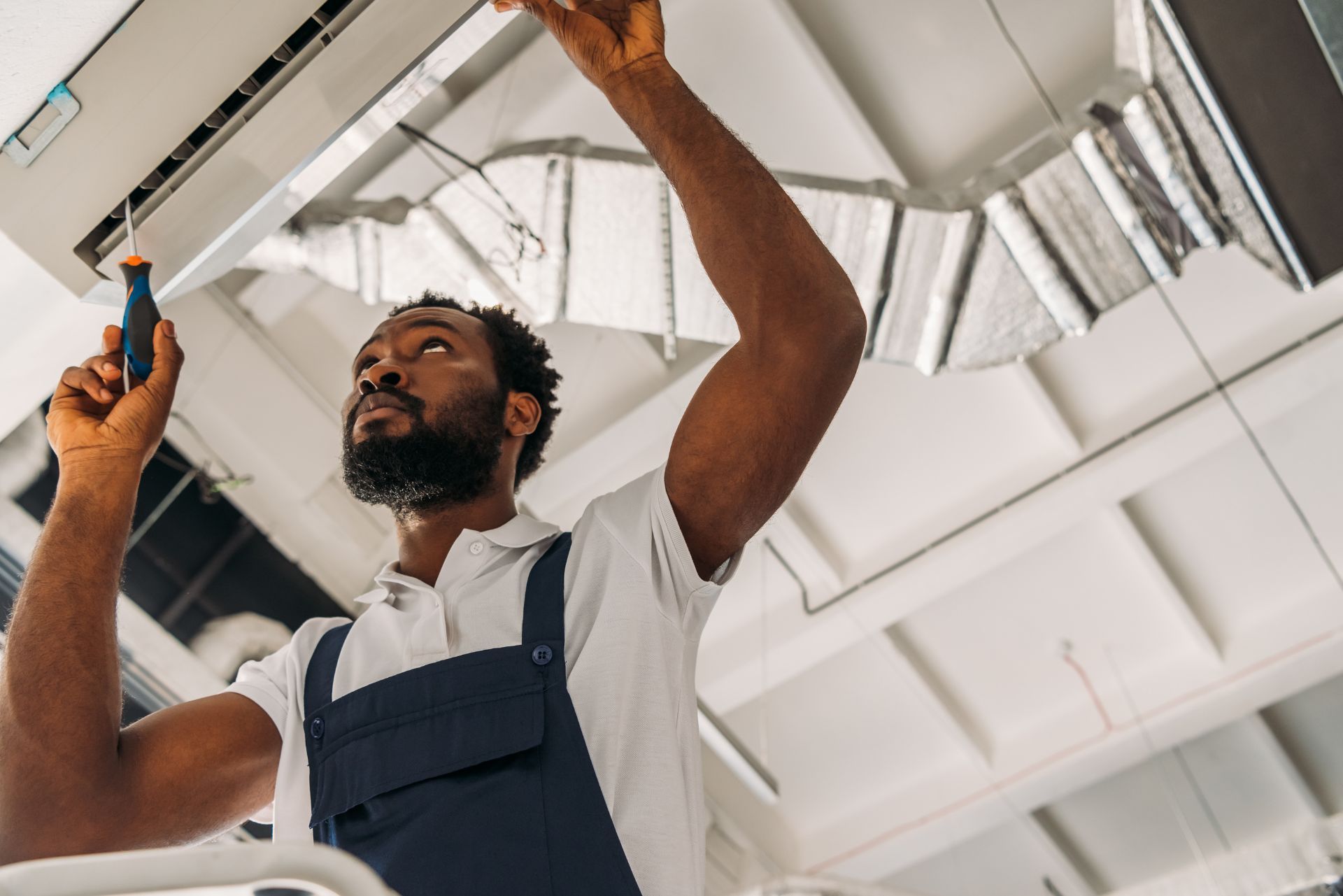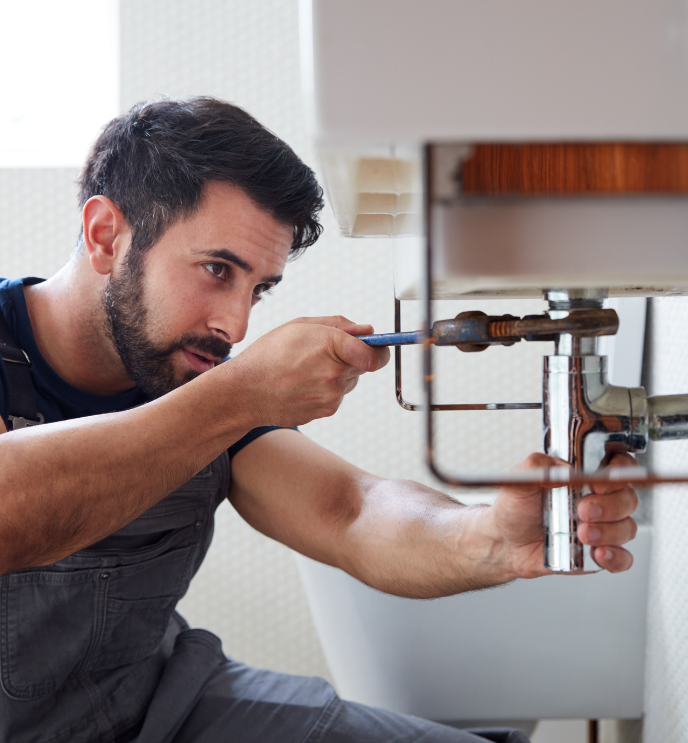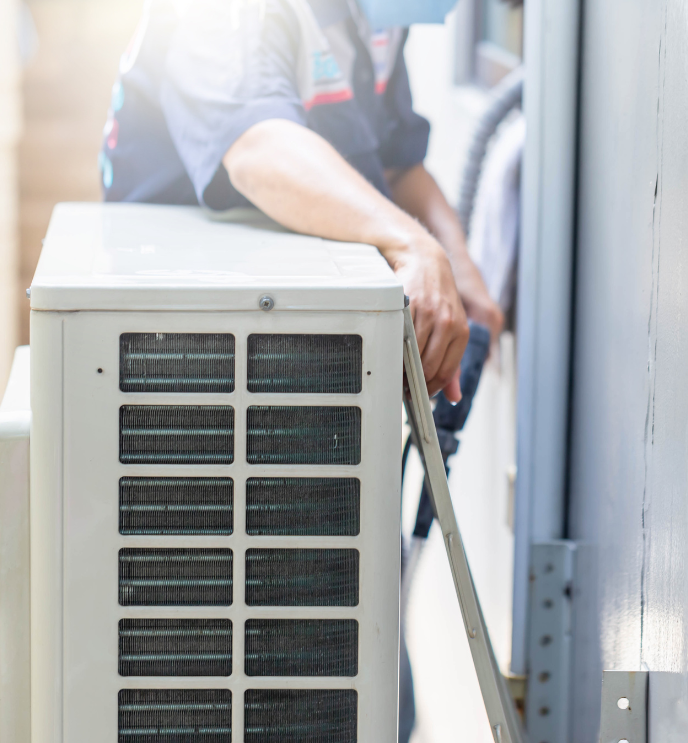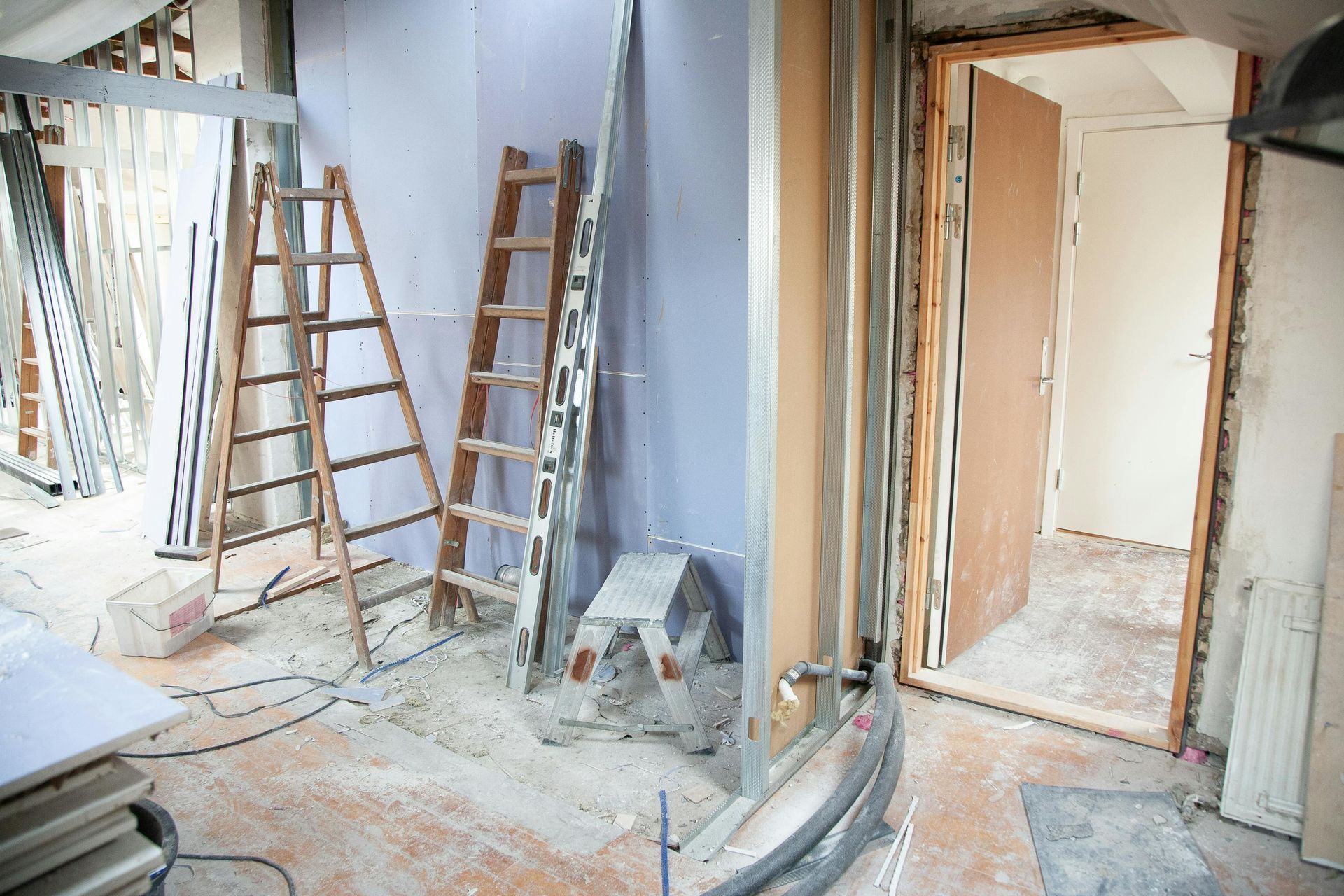Types of Contractors We Serve
Jonathan Behr
Owner of Contractor Insurance Pros by Behr Insurance Services
Index
Contact Us
Phone
Location
Simi Valley, CA 93065
The Woodlands, TX 77382
Katy, TX 77494
In the bustling world of restaurants, maintaining a comfortable environment is crucial for both staff and patrons. HVAC technicians play a vital role in ensuring that heating, ventilation, and air conditioning systems function efficiently. However, like any profession, there are inherent risks involved. This is where insurance comes into play. Understanding the various types of insurance available for HVAC technicians working in the restaurant industry is essential for protecting both the technician and the business.
Understanding the Importance of Insurance
Insurance serves as a safety net for HVAC technicians, providing financial protection against unforeseen events. Whether it's equipment failure, accidents on the job, or liability claims, having the right insurance can mitigate risks and safeguard a technician's livelihood. With the unpredictable nature of the HVAC industry, where technicians often work in various environments and conditions, the need for comprehensive insurance coverage cannot be overstated. It not only offers peace of mind but also fosters a sense of professionalism and trustworthiness in the eyes of clients.
Protecting Against Liability
One of the primary reasons HVAC technicians should consider insurance is to protect against liability claims. In the restaurant industry, where equipment is often in constant use, the potential for accidents is heightened. If a technician inadvertently causes damage to a restaurant’s property or injures an employee while performing maintenance, liability insurance can cover legal fees and any settlements that may arise. Additionally, many clients now require proof of insurance before hiring a technician, making it a crucial factor in securing contracts and building a solid reputation in the industry.
Coverage for Equipment and Tools
HVAC technicians rely heavily on specialized tools and equipment to perform their jobs effectively. Unfortunately, tools can be lost, stolen, or damaged. Equipment insurance can help cover the costs of replacing or repairing these essential items, ensuring that technicians can continue to work without significant financial setbacks. Moreover, investing in equipment insurance can also lead to better inventory management practices, as technicians become more aware of the value of their tools and the importance of keeping them in good condition. This proactive approach not only protects their assets but also enhances their overall efficiency and productivity on the job.
Business Interruption Coverage
In addition to liability and equipment coverage, HVAC technicians should also consider business interruption insurance. This type of insurance is crucial for those who operate their own businesses, as it provides financial support in the event that a technician is unable to work due to unforeseen circumstances, such as natural disasters or significant equipment failure. For instance, if a technician's workshop is damaged by a storm, business interruption insurance can help cover lost income during the repair period, allowing them to maintain their financial stability. This coverage can be a lifesaver, ensuring that technicians can weather the storm—literally and figuratively—without jeopardizing their business operations.

Types of Insurance for HVAC Technicians
There are several types of insurance that HVAC technicians should consider, each serving a unique purpose. Understanding these options can help technicians make informed decisions about their coverage needs.
General Liability Insurance
General liability insurance is often considered a must-have for HVAC technicians. This type of insurance protects against claims of bodily injury or property damage that may occur during the course of work. For example, if a technician accidentally spills refrigerant on a restaurant's floor, causing a slip and fall, general liability insurance can cover medical expenses and legal fees. Additionally, this insurance can also protect against claims related to advertising injuries, such as if a technician's promotional materials inadvertently misrepresent their services, leading to a lawsuit. Given the nature of HVAC work, where technicians frequently interact with clients and their properties, having general liability insurance can provide peace of mind and financial security.
Professional Liability Insurance
Also known as errors and omissions insurance, professional liability insurance provides coverage for claims arising from mistakes or negligence in the performance of professional services. If a technician fails to properly install an HVAC system, leading to costly repairs or damages, this insurance can help cover the associated costs. Furthermore, professional liability insurance can also protect technicians from claims related to inadequate work or failure to meet industry standards. In an industry where technology and regulations are constantly evolving, having this type of coverage ensures that technicians can defend themselves against potential claims that may arise from their professional judgment or advice.
Workers' Compensation Insurance
For HVAC technicians who are self-employed or work for a small company, workers' compensation insurance is vital. This insurance provides coverage for medical expenses and lost wages if a technician is injured on the job. In the restaurant industry, where technicians often work in tight spaces and handle heavy equipment, the risk of injury is significant. Moreover, workers' compensation insurance not only covers physical injuries but can also extend to occupational illnesses that may develop over time due to exposure to hazardous materials or environments. For instance, HVAC technicians may be at risk for respiratory issues from inhaling refrigerants or dust, making this coverage essential for their long-term health and financial stability. By investing in workers' compensation insurance, HVAC technicians can ensure that they are protected against the unpredictable nature of their work environment, allowing them to focus on delivering quality service without the looming fear of financial ruin from workplace accidents.
Factors Influencing Insurance Costs
The cost of insurance can vary widely based on several factors. Understanding these can help HVAC technicians budget for their insurance needs more effectively.
Experience and Training
Insurance companies often consider a technician's experience and training when determining premiums. More experienced technicians with specialized training may qualify for lower rates, as they are perceived as less risky to insure. Continuous education and certifications can not only enhance skills but also lead to cost savings on insurance. For instance, technicians who complete advanced courses in energy-efficient systems or safety protocols may demonstrate a commitment to quality and safety, which insurers often reward with discounts. Furthermore, having a solid track record of successful jobs without claims can further bolster a technician's profile, leading to even more favorable rates.
Location of Business
The geographical location of a technician's business can significantly impact insurance costs. Areas with higher rates of accidents or claims may lead to increased premiums. Additionally, local regulations and the cost of living can influence insurance rates, making it essential to shop around for the best coverage options. For example, urban areas with dense populations may see higher claims due to increased competition and traffic-related incidents, while rural locations might offer lower premiums due to fewer claims. Moreover, understanding the local climate can also play a role; regions prone to extreme weather conditions may require additional coverage for storm damage, which can further affect overall insurance costs.
Type of Work Performed
The specific services offered by an HVAC technician can also affect insurance costs. Technicians who work on complex systems or in high-risk environments, such as commercial kitchens, may face higher premiums compared to those who focus on residential systems. Understanding the risks associated with different types of work can help technicians choose the right coverage. For instance, those specializing in refrigeration systems may need to consider additional liability coverage due to the potential hazards involved with refrigerants and high-pressure systems. Additionally, technicians who offer maintenance contracts or emergency repair services may find that their insurance needs differ from those who only perform installation work, as the nature of their engagements can lead to varying levels of risk exposure.
Choosing the Right Insurance Provider
Finding the right insurance provider is crucial for HVAC technicians. Not all insurance companies offer the same coverage options, and some may specialize in specific industries, such as HVAC for restaurants. Selecting the right provider can mean the difference between having peace of mind and facing financial hardship in the event of an accident or claim.
Researching Options
Before selecting an insurance provider, it's essential to conduct thorough research. Look for companies with a strong reputation in the industry, positive customer reviews, and a history of providing excellent service. Online resources, industry forums, and recommendations from peers can be valuable in identifying potential providers. Additionally, consider reaching out to local HVAC associations or trade groups, as they often have insights into which insurers are favored by professionals in the field. Networking with fellow technicians can also yield personal experiences that highlight the strengths and weaknesses of various companies.
Understanding Policy Details
When comparing insurance policies, it's important to read the fine print. Pay attention to coverage limits, exclusions, and deductibles. Some policies may appear attractive at first glance but could leave significant gaps in coverage. Understanding these details can prevent unpleasant surprises down the line. For instance, certain policies may not cover equipment breakdowns or liability claims arising from subcontracted work. It's also wise to inquire about additional coverage options, such as business interruption insurance, which can protect against lost income during unforeseen events.
Seeking Professional Advice
For those who find the world of insurance overwhelming, seeking advice from a licensed insurance broker can be beneficial. Brokers can help navigate the complexities of insurance policies, ensuring that technicians find coverage that meets their specific needs and budget. They can also provide insights into industry trends and emerging risks that may affect HVAC businesses, such as changes in regulations or advancements in technology. Furthermore, a good broker will take the time to understand the unique aspects of your business, allowing them to tailor recommendations that align with your operational goals and risk tolerance.
Evaluating Customer Support
Another critical factor to consider when choosing an insurance provider is the level of customer support they offer. A responsive and knowledgeable customer service team can make a significant difference when you need to file a claim or have questions about your policy. Look for providers that offer multiple channels of communication, such as phone, email, and live chat, and check their availability during business hours. Additionally, consider reading reviews specifically related to customer service experiences, as this can give you a clearer picture of how the insurer handles claims and inquiries.
Assessing Financial Stability
Finally, it's essential to assess the financial stability of an insurance provider. A company with a strong financial rating is more likely to fulfill its obligations when it comes time to pay out claims. Research ratings from independent agencies such as A.M. Best or Standard & Poor's, which evaluate insurers based on their financial health and claims-paying ability. This step can provide peace of mind, knowing that your provider has the resources to support you in times of need, ensuring that your business remains protected against unforeseen incidents.

Common Insurance Myths
There are several myths surrounding insurance that can lead to misunderstandings about its importance and necessity. Debunking these myths can help HVAC technicians make more informed decisions.
“I Don’t Need Insurance if I’m Careful”
Many technicians believe that being cautious on the job eliminates the need for insurance. However, accidents can happen, regardless of how careful one may be. Insurance acts as a safeguard against unforeseen circumstances, providing peace of mind for technicians and their clients. For instance, even a minor slip or equipment malfunction can lead to significant injuries or property damage, which could result in costly lawsuits or repairs. Having insurance ensures that technicians are not left to bear the financial burden alone, allowing them to focus on their work without the constant worry of potential mishaps.
“Insurance is Too Expensive”
While insurance costs can vary, many technicians may be surprised to find affordable options available. By shopping around and comparing policies, technicians can find coverage that fits within their budget. Additionally, the potential financial burden of an accident or liability claim far outweighs the cost of insurance premiums. Many insurance providers offer discounts for bundling policies or for those who maintain a clean record. Furthermore, investing in insurance can be seen as a proactive step in protecting one’s business and livelihood, ensuring that technicians can continue to operate without interruption in the face of unexpected events.
“I’m Covered Under My Employer’s Insurance”
Technicians who are self-employed or work as independent contractors often assume they are covered under the restaurant’s insurance policy. However, this is not always the case. It’s essential for technicians to verify their coverage and consider obtaining their own policies to ensure comprehensive protection. Many employers may only cover their employees while they are on the job, leaving independent contractors vulnerable during off-hours or while working for multiple clients. Additionally, having personal insurance can enhance a technician's credibility and professionalism, reassuring clients that they are protected against any potential issues that may arise during service. This not only fosters trust but can also lead to more business opportunities as clients feel more secure in hiring a well-insured technician.
Benefits of Having Insurance
Investing in insurance can provide numerous benefits for HVAC technicians working in the restaurant industry. These advantages extend beyond financial protection, enhancing professional credibility and peace of mind.
Enhanced Professional Credibility
Having insurance can enhance a technician's professional image. Clients are more likely to trust and hire technicians who are insured, as it demonstrates a commitment to professionalism and accountability. This can lead to increased business opportunities and referrals.
Peace of Mind
Knowing that there is a safety net in place can significantly reduce stress for HVAC technicians. With insurance coverage, technicians can focus on their work, confident that they are protected against potential risks. This peace of mind can lead to improved job performance and customer satisfaction.
Access to Additional Resources
Many insurance providers offer additional resources and support for their policyholders. This can include access to training programs, safety resources, and industry updates. These benefits can help technicians stay informed and improve their skills, ultimately leading to better service for their clients.
Conclusion
In the dynamic and demanding environment of the restaurant industry, HVAC technicians play a crucial role in maintaining comfort and safety. However, the risks associated with this profession cannot be overlooked. By investing in the right insurance coverage, technicians can protect themselves, their clients, and their businesses from unforeseen challenges. Understanding the various types of insurance available, the factors influencing costs, and the benefits of coverage can empower HVAC technicians to make informed decisions that enhance their professional journey.
Ultimately, insurance is not just an expense; it is an investment in a technician's future and a commitment to providing quality service in the restaurant industry. As the demand for skilled HVAC technicians continues to grow, ensuring adequate insurance coverage will be essential for success and sustainability in this vital field.
Areas we serve









